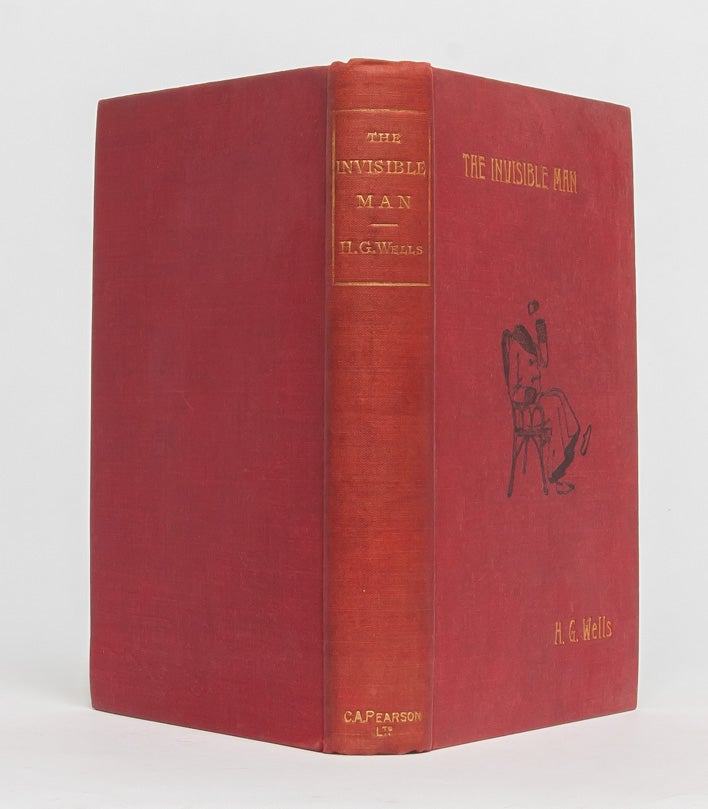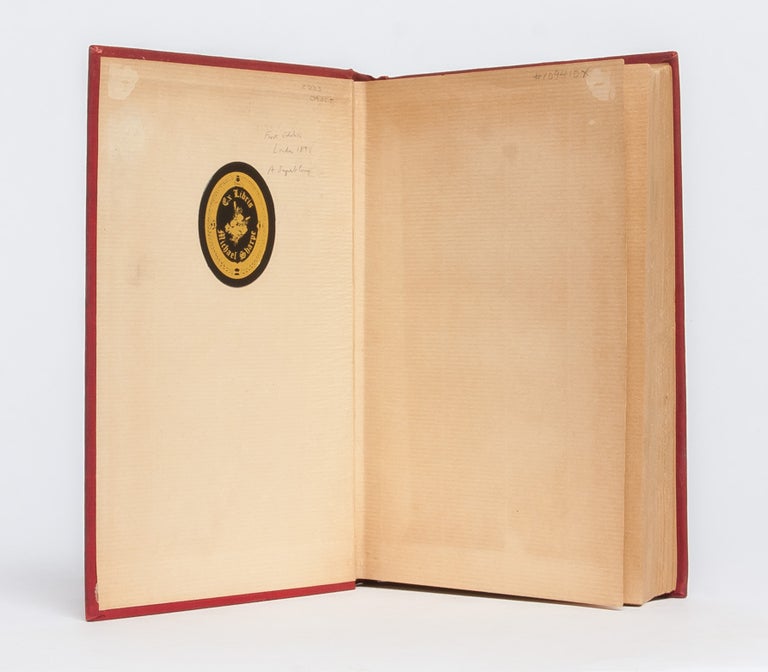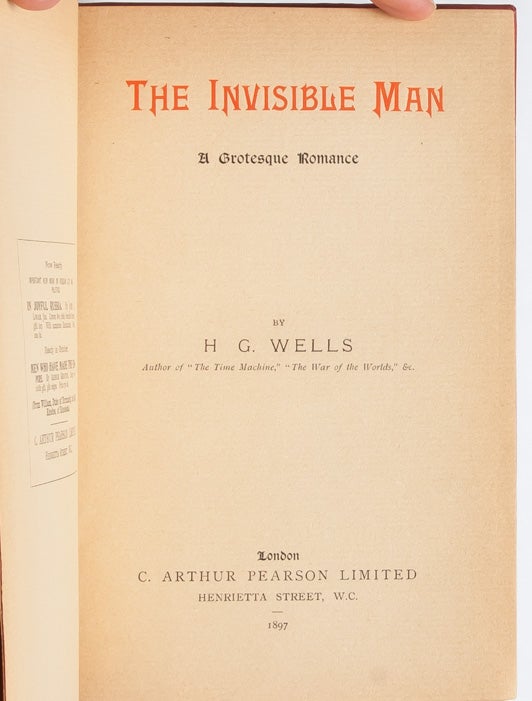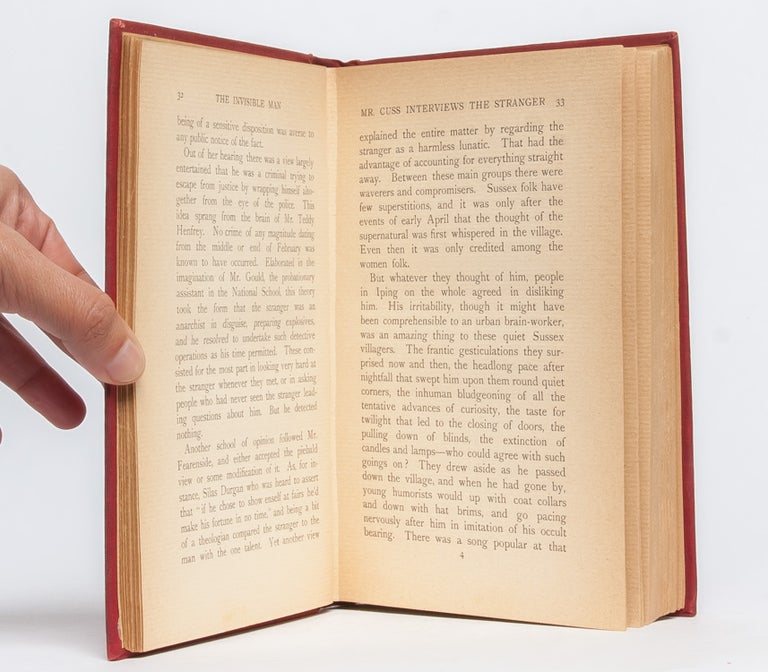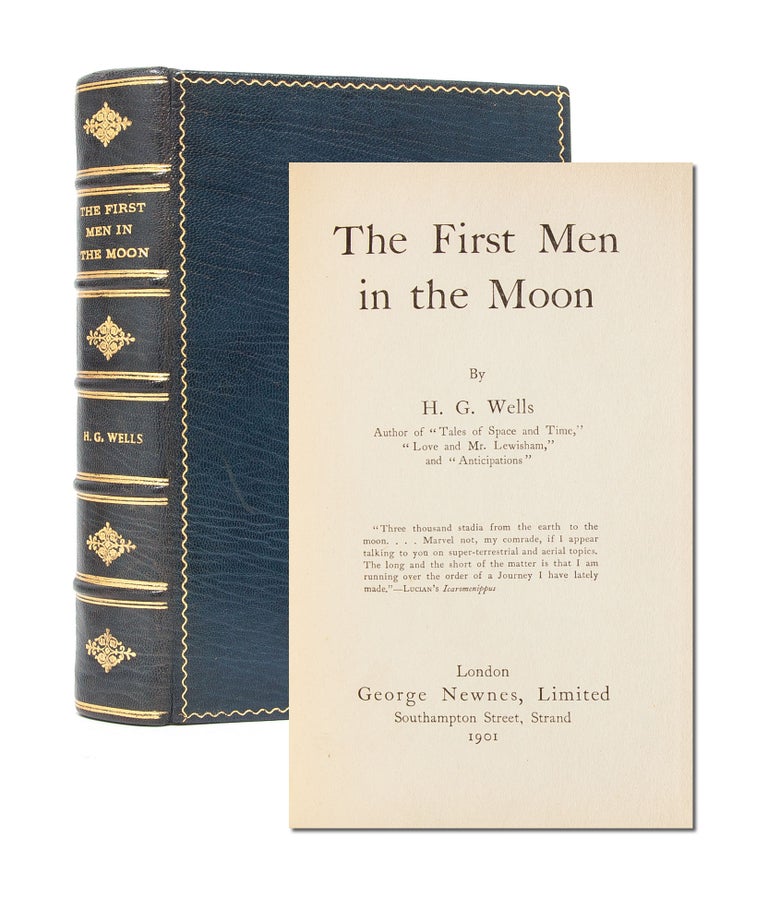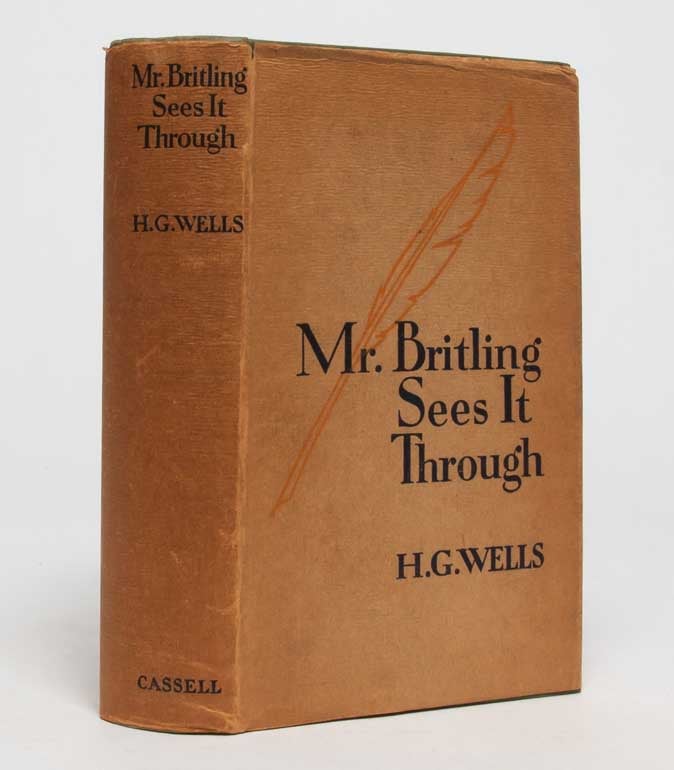The Invisible Man
London: C. Arthur Pearson Limited, 1897.
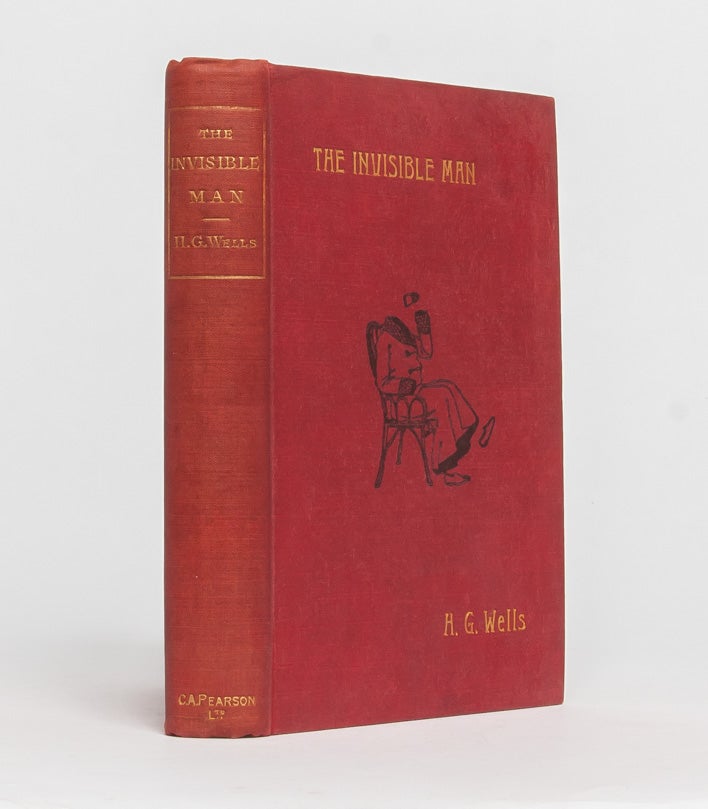

The Invisible Man
London: C. Arthur Pearson Limited, 1897. First Edition. Original red publisher's cloth binding with gilt titles to spine and front board; black illustration to front board. Bookplate of Michael Sharp to front pastedown. Internally unmarked and unread. A superior copy, square, tight, and unfaded.
H.G. Wells connects science with philosophy in this novel, which reimagines and modernizes Plato's tale of The Ring of Gyges. According to Plato, the power of invisibility could corrupt anyone possessing it, giving them the upper hand over friends and enemies alike. Wells' lead character Griffin, a scientist, succeeds in doing just this. "Griffin gives in to many of the same temptations. He robs. He injures. He kills...But even though Griffin is guilty of his share of crimes, his goal is not to indulge in hedonism. His goal is just the opposite: he wants to stop being invisible" (Frederick). Ultimately, the practical problems of being an invisible human work counter to Griffin's interests. The need to be clothed, the isolation from other humans lead to Griffin's downfall and death at the hands of a terrified mob. Indeed, much as his actions dehumanize Griffin, his invisibility allows the mob attacking him to treat him as less than human. An exceptionally important consideration of the benefits and dangers of science, and the definition of humanness at the turn of the century. Fine (Item #3277)

